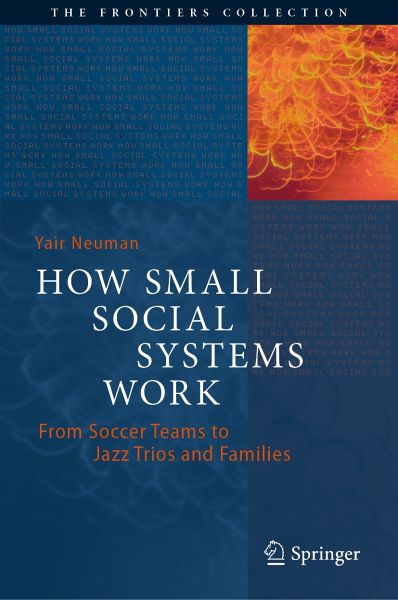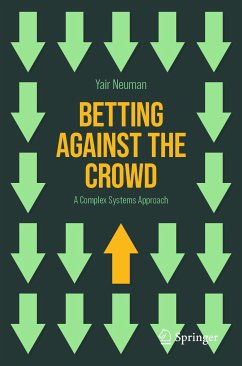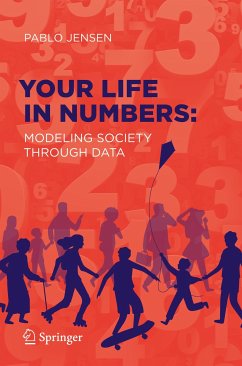
How Small Social Systems Work (eBook, PDF)
From Soccer Teams to Jazz Trios and Families
Versandkostenfrei!
Sofort per Download lieferbar
36,95 €
inkl. MwSt.
Weitere Ausgaben:

PAYBACK Punkte
18 °P sammeln!
Most of us are intuitively familiar with small social systems, such as families and soccer teams. Surprisingly, though, most of us are unaware of how complex these systems are or of the fact that they have a unique character distinguishing them from both populations and individuals. The current manuscript, which emerged from high-level scientific publications on the subject, aims to bridge this gap in our understanding of small social systems. The book aims to explain, illustrate, and model the unique and fascinating nature of small (social) systems by relying on deep scientific foundations an...
Most of us are intuitively familiar with small social systems, such as families and soccer teams. Surprisingly, though, most of us are unaware of how complex these systems are or of the fact that they have a unique character distinguishing them from both populations and individuals. The current manuscript, which emerged from high-level scientific publications on the subject, aims to bridge this gap in our understanding of small social systems. The book aims to explain, illustrate, and model the unique and fascinating nature of small (social) systems by relying on deep scientific foundations and by using examples from sport, movies, music, and the martial arts. To support its friendly exposition of challenging scientific ideas, the book also discusses entertaining questions such as (1) why inviting your mother-in-law to dinner might be a challenging event, for reasons you have never considered; (2) why soccer teams should be messy in order to win; (3) why Nazis are deeply wrong in their understanding of the importance of entropy; and (4) why "panda fighters" failed in the UFC (Ultimate Fighting Championship).
"How Small Systems Work is a welcome book, which sheds light on a branch of mathematics overlooked by scholars: how networks store information. Focusing on small systems, the book asks fundamental questions, providing the tools (and the examples) for answering them -with fun. Neuman analyses, with plenty of humor, the dynamics of a family of cats, the pleasure of listening to jazz, and the science behind football championships, while uncovering hidden gems in the history of cinema"
Dr. Mario Alemi, author of "The Amazing Journey of Reason: from DNA to Artificial Intelligence"
"How Small Systems Work is a welcome book, which sheds light on a branch of mathematics overlooked by scholars: how networks store information. Focusing on small systems, the book asks fundamental questions, providing the tools (and the examples) for answering them -with fun. Neuman analyses, with plenty of humor, the dynamics of a family of cats, the pleasure of listening to jazz, and the science behind football championships, while uncovering hidden gems in the history of cinema"
Dr. Mario Alemi, author of "The Amazing Journey of Reason: from DNA to Artificial Intelligence"
Dieser Download kann aus rechtlichen Gründen nur mit Rechnungsadresse in A, B, BG, CY, CZ, D, DK, EW, E, FIN, F, GR, HR, H, IRL, I, LT, L, LR, M, NL, PL, P, R, S, SLO, SK ausgeliefert werden.












